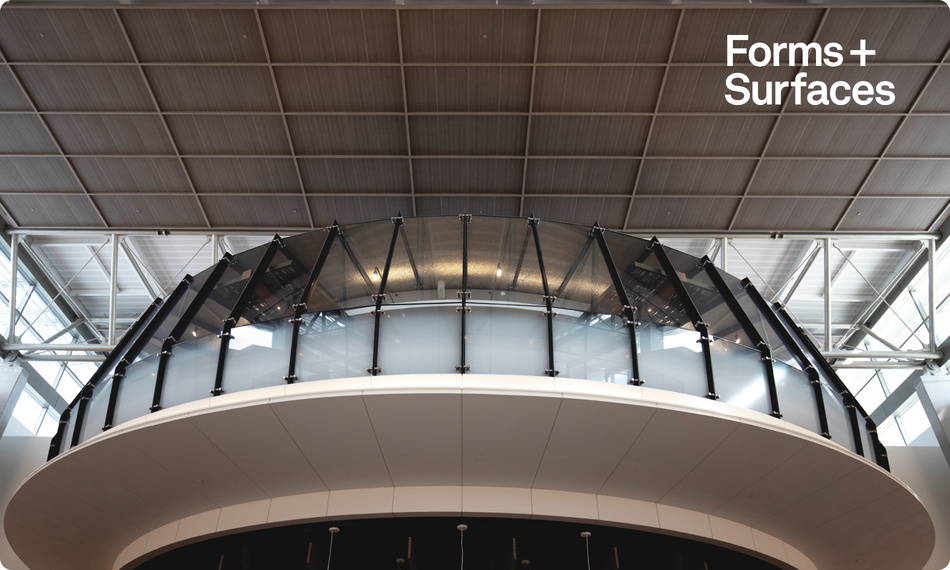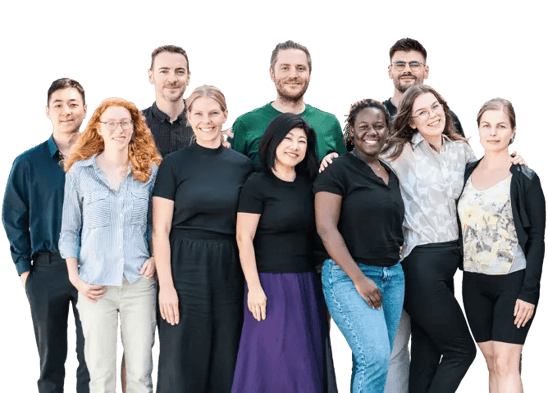
Key learnings from Adam Tripp, Executive Vice President of Design & Operations at Forms+Surfaces
Forms+Surfaces, a leader in architectural and outdoor products, has long embedded sustainability into its core operations. For nearly two decades, this commitment has driven their innovation, aligning business success with environmental stewardship. Recently, Forms+Surfaces partnered with One Click LCA to create environmental product declarations (EPDs), a process that has both showcased their commitment to sustainability, increased their market positioning, and highlighted how changes to their operations could maximize their return on investment.
Sustainability as a strategic cornerstone
Sustainability is not a new endeavor for Forms+Surfaces — it has been a foundational element of their corporate culture and operational strategy for the last two decades. From using only FSC-certified wood since 2008 to ensuring their products feature high recycled content and durability, the company has continually prioritized materials and processes that reduce environmental impact.
This philosophy extends beyond materials to a holistic approach to product design, ensuring longevity, timelessness, and deconstructability. By designing products that fit seamlessly into the built environment for decades, Forms+Surfaces minimizes waste and maximizes value for clients. Their focus on durability and adaptability ensures that products maintain relevance and utility over time, a testament to their forward-thinking approach to sustainability.
Leveraging EPDs for business growth
Recognizing the growing demand for transparency in the architectural and design community, Forms+Surfaces used One Click LCA’s EPD Generator to create EPDs for their products. Through comprehensive life-cycle analyses of their architectural glass products, they were able to uncover new opportunities to optimize operations and material usage.
Operational insights & cost savings: The EPD process highlighted inefficiencies in material standardization across product lines. By addressing these gaps, Forms+Surfaces improved material yields, reduced costs and waste, and streamlined production processes — realizing significant gains in operational efficiency. This process also revealed opportunities to optimize procurement and logistics, further reducing costs and environmental impact.
Market competitiveness: In an industry where architects and specifiers increasingly require EPDs to make informed decisions, Forms+Surfaces’ ability to provide transparent, third-party verified data has strengthened client trust and positioned the company as a sustainability leader. Meeting these demands not only enhances customer relationships but also opens doors to high-profile projects, allowing them to compete in sustainability-focused markets and win bids that prioritize low-carbon materials.
“From a sales and marketing aspect it's great to be able to have the transparency of an EPD and to meet the expectations of the market. On the operation side, it's really nice because it allows us to uncover every piece of the logistics puzzle. The result every time will be an increase in operational efficiency because you have a much cleaner understanding of your processes than you did before.”
— Adam Tripp, Executive Vice President of Design & Operations, Forms+Surfaces
Continuous improvement and innovation
The journey to sustainability at Forms+Surfaces is defined by a culture of continuous improvement. Rather than setting long-term goals, Forms+Surfaces focuses on daily advancements. By consistently revisiting processes and integrating sustainable practices, the company ensures that environmental considerations are at the forefront of every decision.
Their efforts extend to innovative initiatives, such as:
- DarkSky lighting: Forms+Surfaces recently committed to exclusively developing outdoor lighting products with options that meet DarkSky standards, reducing light pollution and enhancing environmental impacts. This initiative reflects their dedication to aligning product innovation with environmental preservation.
- Circular economy design: Products are designed for end-of-life recyclability, enabling deconstruction into secondary waste streams. This approach minimizes landfill contributions and promotes resource efficiency. For example, their site furniture and architectural systems are engineered for easy disassembly, allowing components to be reused or recycled without additional processing.

Beyond these initiatives, Forms+Surfaces continues to experiment with new materials, such as highly recycled content metals and bio-based alternatives. Their research and development teams collaborate closely with supply chain partners to identify and incorporate innovative materials that meet rigorous performance and sustainability standards.
Insights for other construction manufacturers
For manufacturers just beginning their sustainability journey, Forms+Surfaces’ experience offers key lessons:
- Start small, but start now: Even incremental steps can yield significant insights and operational benefits. The sooner companies begin the process of creating EPDs for business growth, the sooner they can identify areas for improvement.
- Embrace data-driven decision making: Life-cycle assessments not only provide transparency but also uncover inefficiencies and opportunities for innovation. By focusing on quantifiable metrics, manufacturers can set realistic goals and measure progress effectively.
- Engage across teams: The EPD process fosters collaboration among design, operations, marketing, and supply chain teams, driving holistic improvements. By involving all stakeholders, companies can ensure that sustainability becomes an integral part of their operations.
Building internal and external transparency
Transparency is a central theme in Forms+Surfaces’ sustainability efforts. Internally, the life-cycle assessment process has brought teams together, aligning design, operations, and marketing under a shared vision. By uncovering inefficiencies and identifying opportunities for improvement, the company has created a culture of continuous learning and adaptation.
Externally, EPDs provide clients with the data they need to make informed decisions. As specifiers, architects, and landscape designers increasingly prioritize products with verified environmental credentials, Forms+Surfaces’ ability to provide detailed, third-party certified data has become a significant competitive advantage. This transparency builds trust and demonstrates the company’s commitment to meeting the highest sustainability standards.
From insight to impact: The business benefits of EPDs
The EPD process was a game-changer for Forms+Surfaces, delivering deep insights into their operations and producing tangible business benefits. Using One Click LCA’s platform, they identified ways to optimize material usage, standardize components, and streamline production workflows. This resulted in reduced costs and waste and enhanced operational efficiency, all while improving their sustainability performance and acting as a market differentiator.

By analyzing life-cycle data, the company pinpointed inefficiencies and implemented strategies to maximize material yields and improve procurement processes. These adjustments not only reduced production expenses but also minimized environmental impact, reinforcing the company’s commitment to sustainability. Additionally, the transparency provided by EPDs enhanced Forms+Surfaces’ market position, meeting the growing demands of clients for environmentally responsible products. One Click LCA’s straightforward tools made the process seamless, enabling the company to integrate these improvements into their operations quickly and effectively.
Leading by example: A sustainable vision for the future
Forms+Surfaces sees sustainability as an ongoing commitment rather than a finite goal. Their partnership with One Click LCA has underscored the importance of transparency and innovation in sustaining their competitive edge. By continuously seeking ways to reduce their environmental footprint and align with the needs of the built environment, Forms+Surfaces exemplifies how sustainability can drive long-term business success.
For manufacturers looking to gain a competitive edge, Forms+Surfaces’ journey offers a clear path forward. By adopting One Click LCA’s EPD tools, companies can enhance operational efficiency, cut costs, and meet the rising demand for sustainable products. The EPD process is not only a step toward greater environmental responsibility but also a powerful way to improve market positioning. With One Click LCA, the journey to sustainability is both accessible and transformative.
Carbon Experts Newsletter
Industry news & insights — straight to your inbox
Want to learn more?
Kim Koivula • Feb 04 2025
Laura Drury • Nov 26 2024
Anna Zahrmann • Oct 02 2024
Muhammad Ali Saleem • Jan 13 2025
